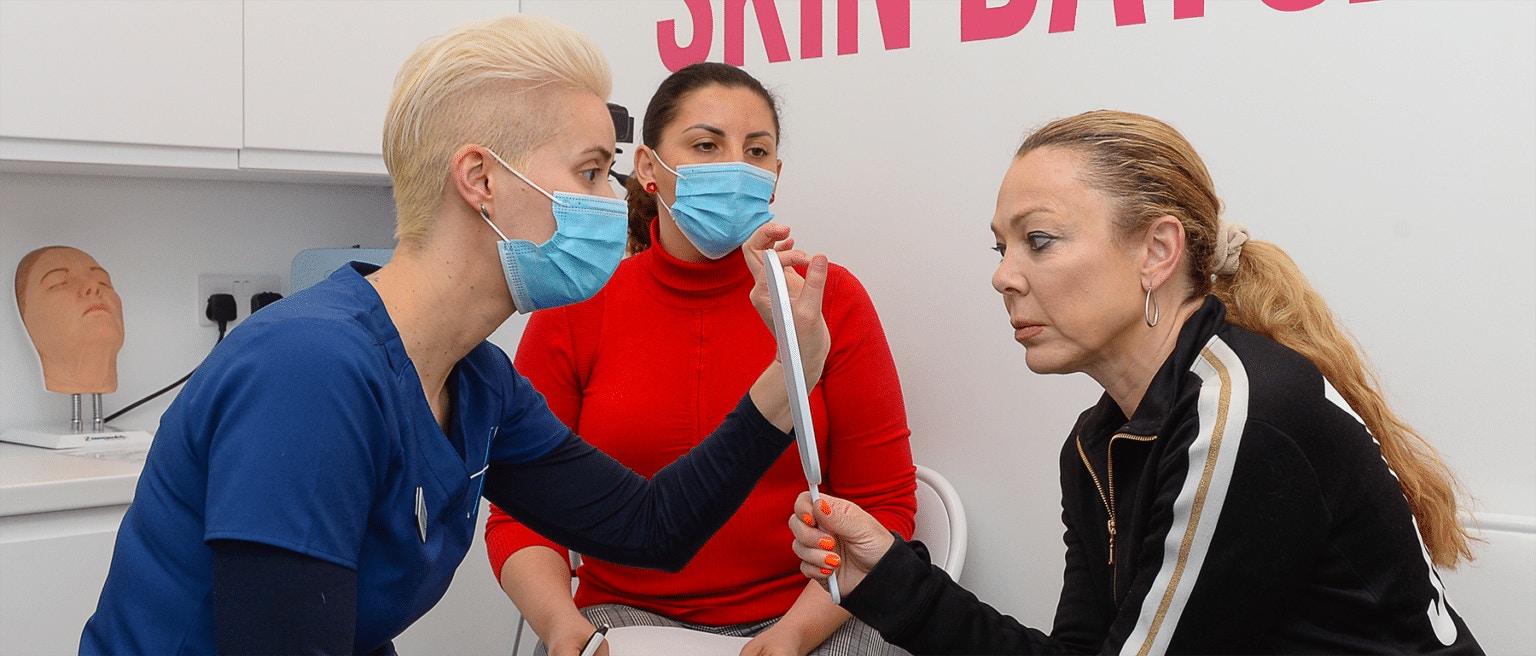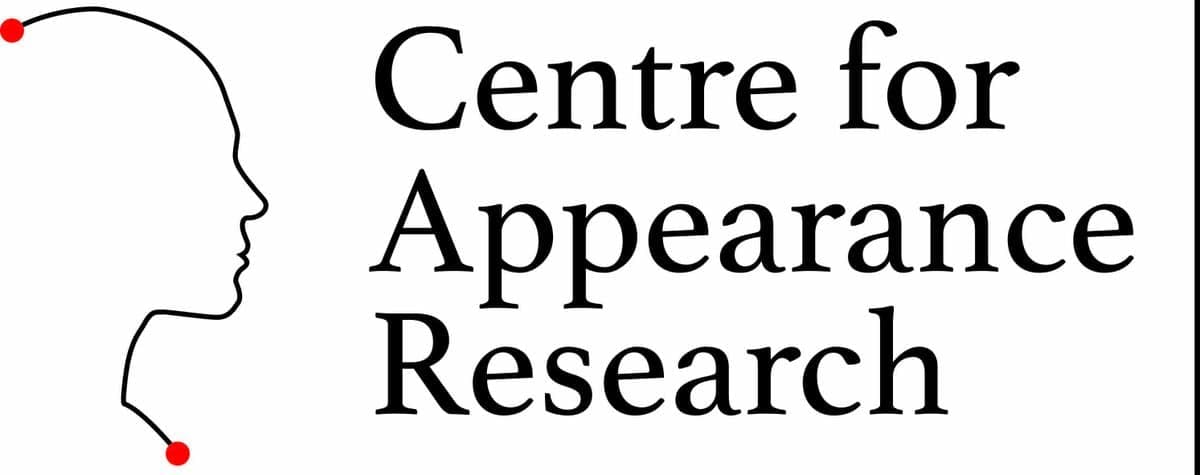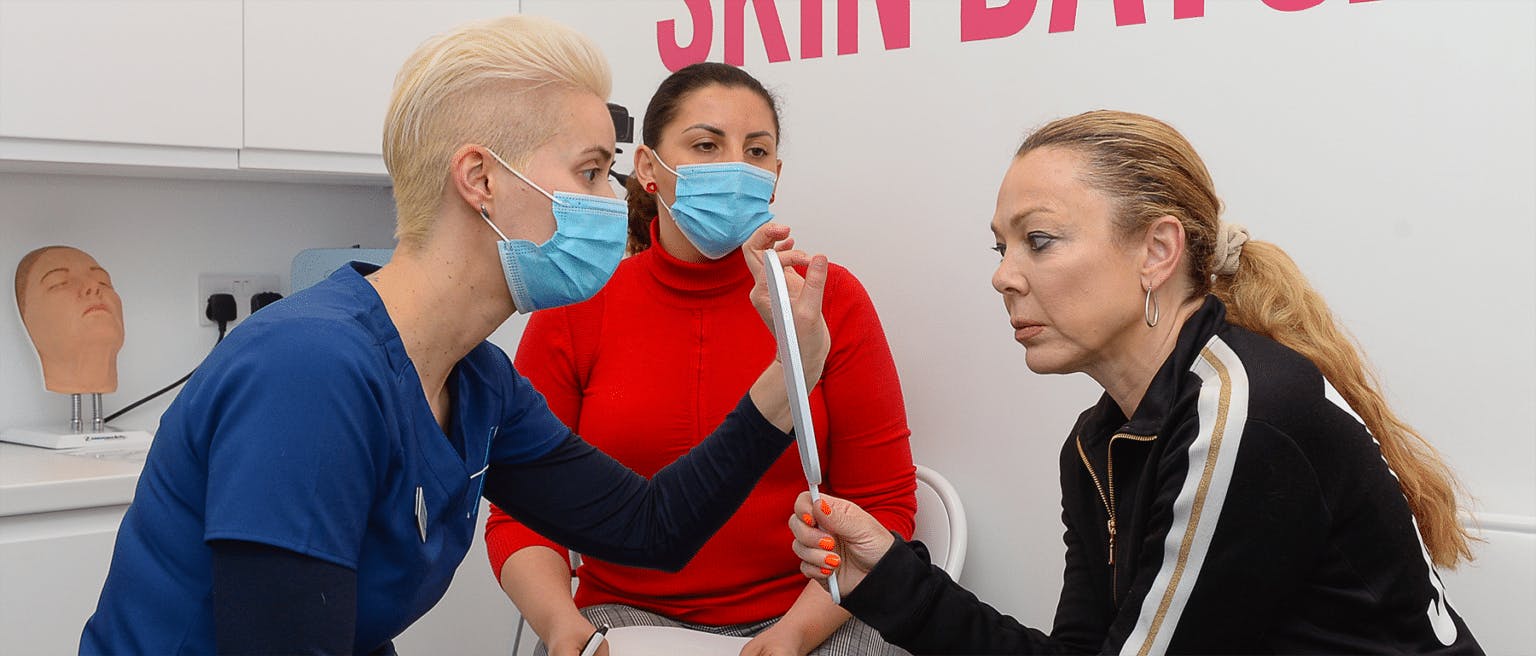Aesthetics Patient Psychological Evaluation Partnership

At Harley Academy we are committed to driving up standards across the aesthetic medicine industry. Our latest initiative aims to explore and improve an industry-specific issue through a new aesthetics patient psychological evaluation partnership.
Harley Academy is joining forces with the Centre for Appearance Research at the University of the West of England (UWE), Bristol, UK and Triskelion in Stavanger, Sweden.
Together we will assess the feasibility and acceptability of an evidence-based framework for psychological assessment and follow-up in routine practice of prospective patients seeking appearance-altering treatments.
Harley Academy and The Academy Clinic will use its flagship City of London site as a trial centre for this crucial work.

Mental health, body image and cosmetic procedures
Following the initial piloting phase, our collaboration aims to generate the data necessary to improve understanding of the psychological benefits and risks of cosmetic procedures, definitive assessment tools, recommendations for appropriate client management and accompanying training materials for cosmetic practitioners.
The need for this type of framework has never been greater, as highlighted in the recent findings from the All-Party Parliamentary Group (AAPG) Inquiry into non-surgical aesthetics procedures.
Levels of body image dissatisfaction and distress continue to rise in young people and adults of all ages, both in the UK and globally, as shown by Prof. Nichola Rumsey. Cosmetic procedures are seen by some as a “quick fix” for appearance dissatisfaction, low self-esteem or low levels of wellbeing. However, expectations of the likely psychological outcomes following the anticipated change in appearance can be unrealistic.
Until recently, vulnerability to poorer psychological outcomes following cosmetic procedures has focussed on Body Dysmorphic Disorder (BDD). Prof. Rumsey’s evidence now shows the higher prevalence of a broad range of psychological vulnerabilities in people seeking cosmetic procedures. These include anxiety, depression, stress, eating disorders and other body image difficulties.
Developing psychological patient evaluation tools

The majority of prospective aesthetics patients seek appearance-altering procedures for psychological reasons. Yet despite this, pre-procedural assessments to ascertain the likely psychological benefits to the client and techniques for managing clients appropriately are currently lacking.
Psychological adjustment is multifactorial. As a result, the development of a definitive, brief assessment tool suitable for routine use in cosmetic practice is challenging.
Existing measures focus on individual elements of adjustment, such as BDD, but fail to capture the range of psychological vulnerabilities present in potential aesthetics patients. The need for a new authoritative assessment tool is widely acknowledged. However, the data necessary to underpin the development of such a tool are currently lacking.
This is why we are proud and excited to work with Dr. Alex Clarke and Prof. Nichola Rumsey from the Centre for Appearance Research and Triskelion on this important research project.
Partnership facilitated by Dr Tristan Mehta
“In light of recommendations from the recent cosmetic sector All-Party Parliamentary Group, our partnership will address the lack of data surrounding long-term psychological consequences of non-surgical cosmetic interventions,” says Harley Academy founder and executive chairman, Dr Tristan Mehta who facilitated the partnership.
“To address this pressing issue, we are looking forward to a fruitful partnership with our colleagues in Sweden and at the world’s largest research centre in Bristol. We hope to establish a breakthrough tool for the industry, following assessments as to the feasibility and acceptability of an evidence-based framework for psychological assessment and follow-up in routine practice.”
“Harley Academy’s core mission is – and has always been – to drive up standards in aesthetic medicine. We are in dire need of a validated consultation tool which will allow us to predict psychological outcomes from our treatments and protect vulnerable patients who would otherwise have a poor prognosis. As such, we are happy to be among the pioneers of this project which could have such a positive impact on patient wellbeing in the aesthetics industry.”
Faculty training, headed up by director of education Dr Kalpna Pindolia, is currently underway at our Moorgate clinic and we will bring you updates on this compelling venture as they become available. Progress will also be shared on our social media channels so follow us on Instagram to ensure you don’t miss our latest news.
All information correct at the time of publication
Download our full prospectus
Browse all our injectables, dermal fillers and cosmetic dermatology courses in one document
By submitting this form, you agree to receive marketing about our products, events, promotions and exclusive content. Consent is not a condition of purchase, and no purchase is necessary. Message frequency varies. View our Privacy Policy and Terms & Conditions
Attend our FREE open evening
If you're not sure which course is right for you, let us help
Join us online or in-person at our free open evening to learn more
Our Partners














STAY INFORMED
Sign up to receive industry news, careers advice, special offers and information on Harley Academy courses and services

